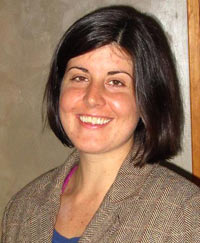
Position: GIS Analyst
Education: BSc Geomatics; Environmental Technology diploma
Employer: Self employed
What kind of work do you do? How is soil science a part of your job?
I work as a self employed GIS analyst. Over the past two years I have been involved in digital soil mapping (DSM) projects with Agriculture Canada and the Ministry of Forests and Range. Our goal is to convert historical paper maps that are based on field observations to a collection of digital maps. We have been using predictive mapping techniques to convert individual soil maps into a continuous surface. My background includes a BSc in Geomatics, and a diploma in Environmental Technology. I work with soil scientists who provide expert knowledge and mental models. I use that information to design predictive rules that help us fill in the blanks between mapsheets. We are concerned with understanding the processes and combination of factors that contribute to the formation of different soil series. With this information we predict where a particular soil will occur on the landscape based on the topography, vegetation, climate, and parent material at a location.
Why do you think it is important to study soil?
My experience with DSM work has given me an appreciation for the interesting and complex nature of soil science. I feel it is very important to continue maintaining and improving Canadian soil information. Soil reflects many processes in our environment and accurate information about soil is a necessary input for important environmental modeling including hydrology and climate. We need to know about soil, and what kind and quality of soil exists in our country in order to know about our climate, hydrology, agriculture and many other important systems.